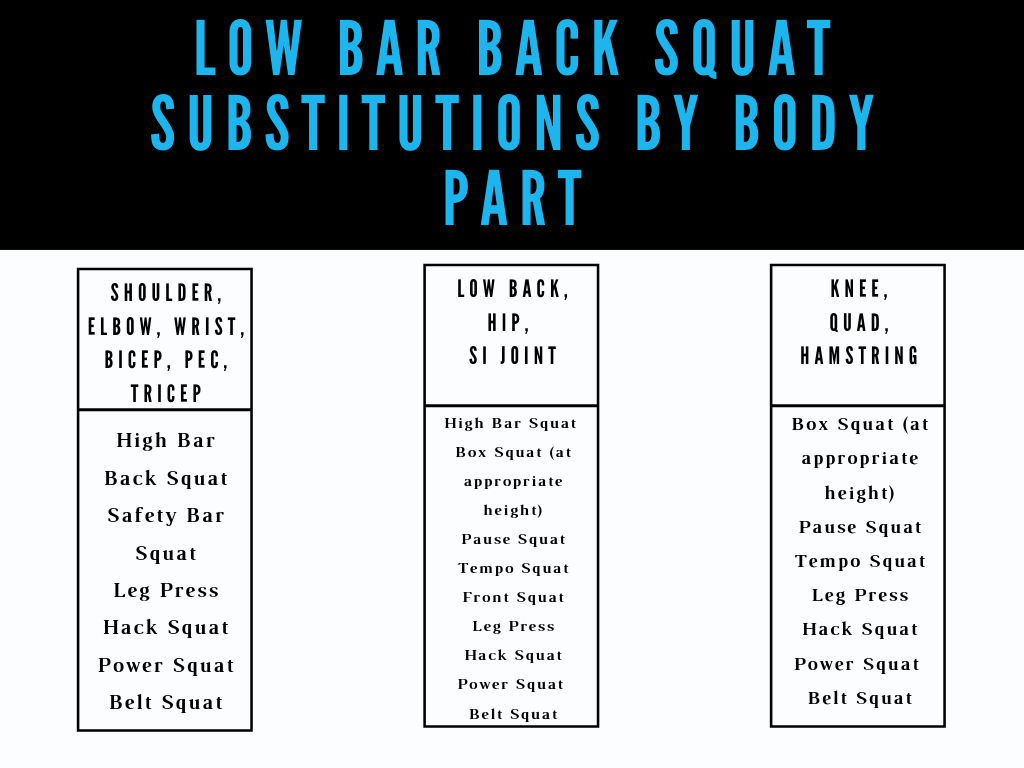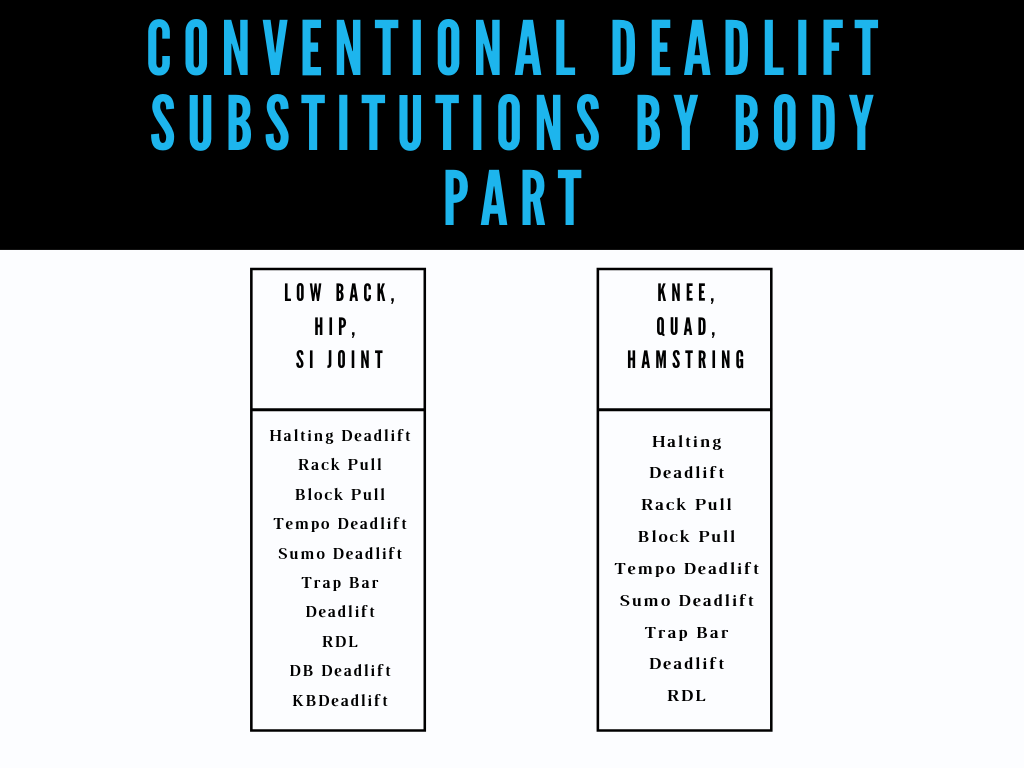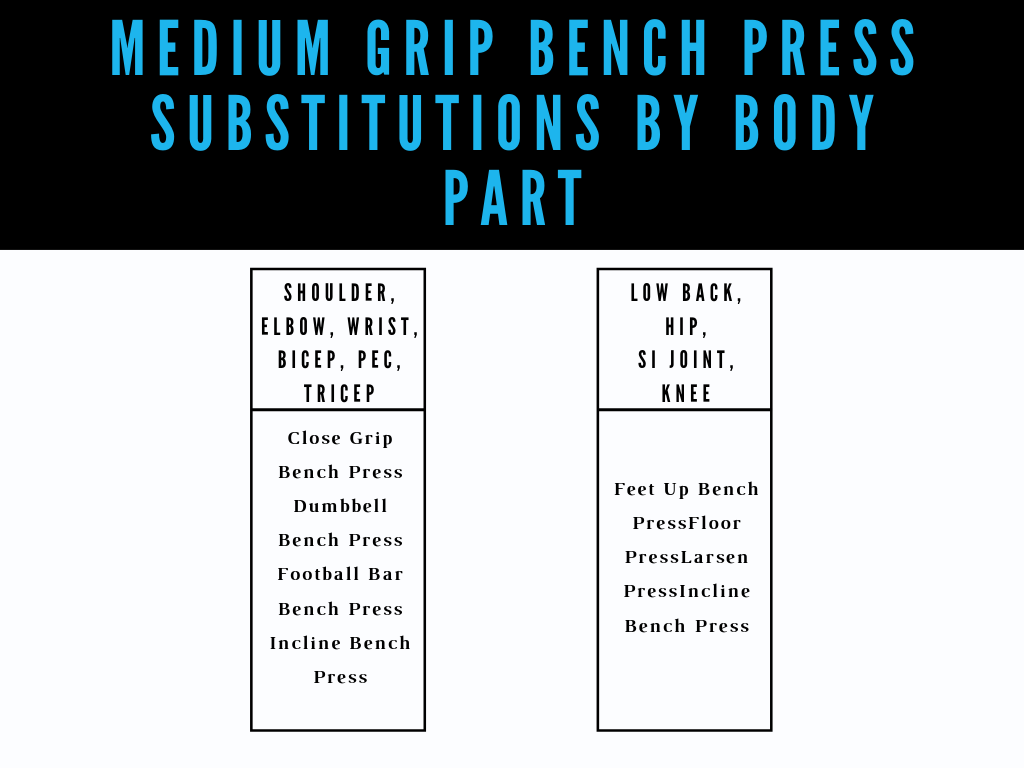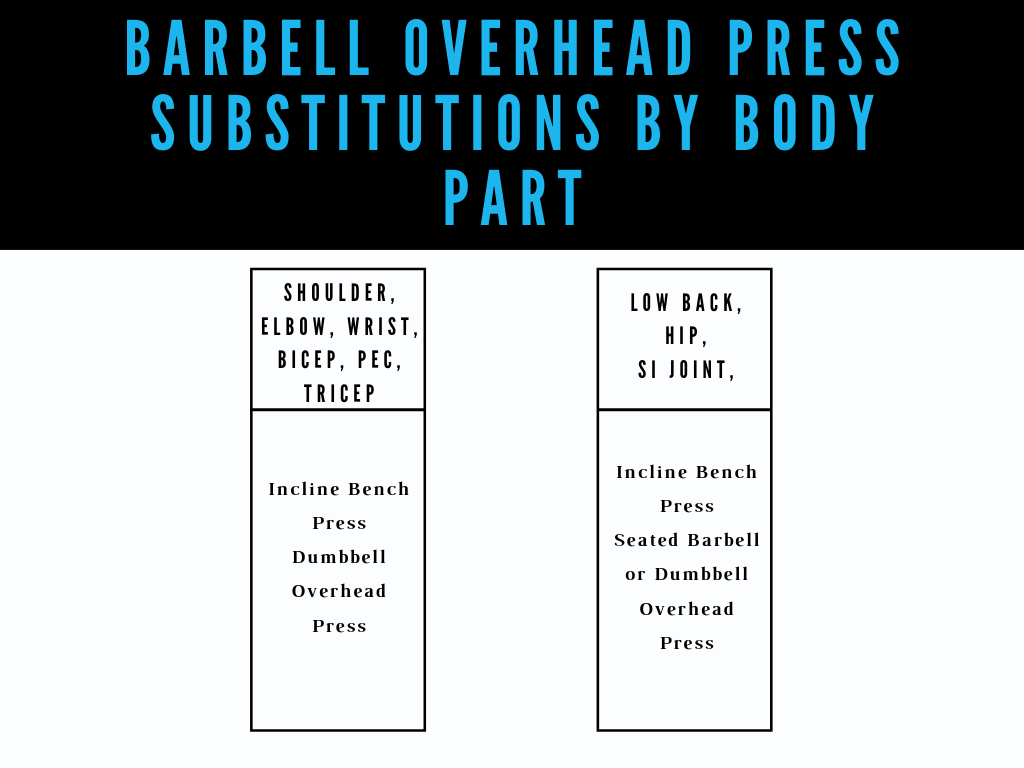Strength training is the most effective way to improve your quality of life and all your fitness goals. In this article we covered the simplest and most effective way to begin strength training, and provided multiple training schedules so that time is not an excuse for incorporating barbell resistance training into your life. We encourage novice resistance training programs to include the low bar back squat, medium grip bench press, conventional deadlift, and overhead press, but understand that not everyone can perform these lifts for various reasons.
A common barrier people face is a physical limitation or injury that prevents them from doing the program and movements as written. While the program is written with the Low Bar Back Squat, Medium Grip Bench Press, Barbell Overhead Press, and Conventional Deadlift, it does not mean that it must be done with these lifts. The point of the program is to get you lifting and building strength and our previous articles outline the program as the ideal framework to do so. However, we would encourage you to find an alternative way to linearly progress your strength in the absence of being able to use the exact movement model suggested.
Below are charts of limitations and injuries you may have and movements to substitute to still engage in the NLP to get stronger in the most optimal way possible for you.
Oftentimes people don't engage in barbell resistance training because their doctor or physical therapist told them deadlifts are bad for their backs, squats will mess up their knees, and overhead pressing will shred their shoulders.
As a doctor of physical therapy, I'm here to tell you that it is not these lifts that are inherently dangerous. It's the incorrect application of the movements, loads, and program that may, but not always, lead to injury. I'm also here to tell you that with osteoarthritis, bulging or slipped discs, a torn meniscus, rotator cuff tears, labrum tears, and any other "abnormality" you might have, it's 1) normal to have these things and 2) completely fine to squat, bench, deadlift, and overhead press with these of things going on inside your body.
You must find an appropriate starting load that isn't too heavy and a movement that works best for you. The load and movement should not cause symptoms, and you'll progress conservatively from there. This may mean that you default to an alternative lift from the charts above in place of executing the program with the original lifts mentioned. Now, if you find that the empty 45lb bar is too heavy to begin with, find alternatives in your gym. Some equipment to start with when the 45lb bar is too much include:
Fixed bars (ranging from 10lb usually up to 120lb) you can find on weight trees in the middle of most commercial gyms near the dumbbells
Dumbbells and here are links on how to execute each movement of the NLP with dumbbells (DB Squat, DB Bench Press, DB Deadlift, DB Overhead Press)
No weight at all. Do the lifts without weight or holding a PVC pipe then progress in 1-5lb increments from there.
Hopefully, we've gone through all the reasons that stopped you from starting a barbell resistance training program. Let us know in the comments below how your first workout goes! If there is still a reason you haven't started, please set up a free call with us so we can help you troubleshoot so you can finally begin to get stronger!
And remember, at PRS, we believe in strength and barbells for everyone, no excuses for getting started, and free access to help to reduce some of your barriers to getting this show on the road. Join the PRS community on Facebook in the Secret Society of Barbell Mastery, where we answer all your questions and provide FREE form checks every Wednesday and Friday. No excuses! Let's get strong! You can also read our free guide about healthy barbell training here.
If you're interested in learning how to optimize barbell technique, maximize strength and muscular development, and reduce injury risk (and peeing) for you, your clients or patients, then join the waitlist to get insider information on all the PRS online courses when they're ready for enrollment!




